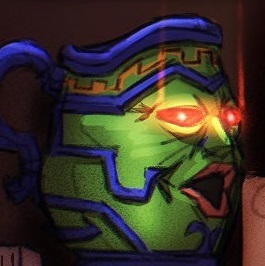Hello comrades, it's time for our FINAL discussion thread for The Will to Change, covering Chapters 10 (Reclaiming Male Integrity), 11 (Loving Men) and the book as a whole. Thanks to everyone who's participated over the last couple months, I’m looking forward to hearing everyone’s thoughts again. And if you haven't started the book yet but would like to, this thread will stay pinned for a while so you can share your thoughts as you read!
As we reflect on the book as a whole, there are a few questions I'm curious to hear everyone's answers for:
-
What was your biggest takeaway from reading The Will to Change?
-
How has the book's material and hooks' insights affected your everyday life?
-
How can we apply hooks' lessons on healthy, non-patriarchal masculinity to improve the site culture of Hexbear?
If you haven't read the book yet but would like to, its available free on the Internet Archive in text form, as well as an audiobook on Youtube with content warnings at the start of each chapter, courtesy of the Anarchist Audio Library, and as an audiobook on our very own TankieTube! (note: the YT version is missing the Preface but the Tankietube version has it)
After this I would like to host another book club, probably here on /c/menby but it depends on what exactly we read. Please share any suggestions you have for books below!

First of all, thanks to you for hosting this and to everybody else for participating. It was fun to be part of our little reading circle and the perspectives from other users were both insightful and often deeply moving.
Regarding your questions:
I've found the concept of patriarchal masculinity to be a very useful puzzle piece for my feminist theory and praxis. It actually works really well with my core takeaway from the Gender Accelarationist Manifesto, which is to seperate gender as a class, as a system of control and something assigned to oneself by others from gender as an identity, as a self-determined performance and a freely chosen role.
It was also interesting to see the subject of masculinity tackled from the perspective of a heterosexual woman, to understand that my straight sisters need good men in their life and that our struggle must involve creating a society in which they can find love with non-patriarchal men. As a t4t lesbian, it's easy to forget that not all women have the comfort of dating in a bubble of people they see eye to eye with. As somebody who's found closeness and intimacy with what hooks would describe as spiritually whole, intact people connected to themselves, i want my experience to be attainable to everybody. A lot of what she's written about sex and love is part of my day to day reality and i want to see a world where that's normal for people of all genders and sexualities, where everybody can build relations freed from the damage done by patriarchy.
I've already used some of the book's core points in discussions about patriarchy, it helps to move past blaming an essentialist notion of masculinity and getting to the core of the problem. I absolutely see the use of visionary feminism, it's a very helpful approach. It has also made a lot of the intersections between patriarchy, capitalism, racism and imperialism more clear.
I'm also glad that so many men here have found the reading to be a healing experience. I know, albeit in a different way, what it's like to rebuild and heal yourself after decades of denying yourself. i've long wondered how that can be made possible for cis men who cannot take my radical approach of completely discarding to live in a male role, and i think hooks shows some ways in which this is possible.
We should strive to make this place a working support structure where people can be open and vulnerable without fear of reprisal and judgement. hooks focuses a lot on personal relationships between men and women and that's an important aspect, but i've found in my own journey that it is very useful to have communities where people share emotional labor to help those who need to vent and unburden themselves. Because it is work to listen to somebody who needs to get something off their chest or to outright trauma dump. When we help others in such situations, when we are empathetical and offer a shoulder to lean on, we take on some of their pain and that can take a toll. This is why communal support structures are so important. A lot of men can only open up with their partner and that means she has to do all the work in helping and comforting her loved one. When we build safer, more supportive communites, we can distribute that work, create spaces where people who have the spoons to offer help can freely opt in to do so. I'm fortunate enough to be in such spaces, and i see how much good it can do. This site should become more of such a space, too.
Lastly, i also want to add one caveat in applying hook's theories. I understand that she argues within a long-standing discourse that has overfocussed on an essentializing hatred of men (and of people TERFs falsely believe to be men, or "to have gone through male socialization"). Understanding that patriarchal masculinity is not an essential, uncurable condition, but something that can be overcome is a crucial and important insight. However, we should not exonerate those who lack the will to change. There's too many men out there who show no interest in bettering themselves, and i have seen in the past. on this site, that both hook's work and a critique of gender essentialism have been used in bad faith. We need to be watchful of actors who try to shield themselves and other patriarchal men from criticism by misrepresenting, instrumentalizing and weaponizing these ideas.
deleted by creator